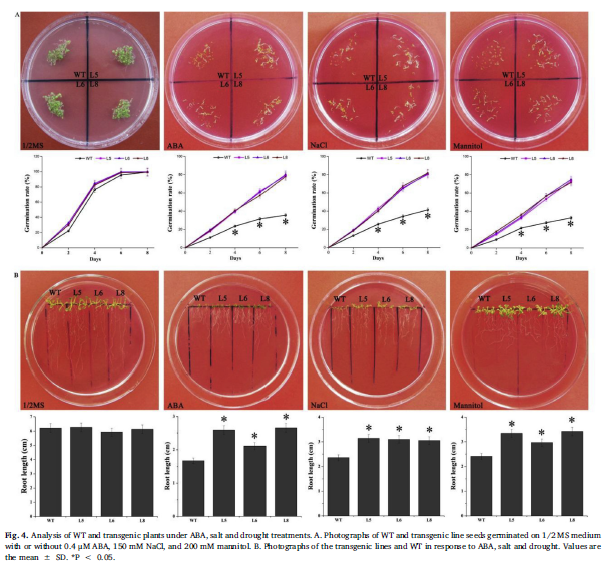Yunji Huang1, Haixia Zhao1, Fei Gao, Panfeng Yao, Renyu Deng, Chenglei Li, Hui Chen, Qi Wu∗
College of Life Science, Sichuan Agricultural University, No. 46, Xinkang Road, Ya'an, 625014, Sichuan Province, China
A B S T R A C T
Abiotic stress causes various negative impacts on plants, such as water loss, reactive oxygen species (ROS) accumulation and decreased photosynthesis. R2R3-MYB transcription factors (TFs) play crucial roles in the response of plants to abiotic stress. However, their functions in Tartary buckwheat, a strongly abiotic and resistant coarse cereal, haven't been fully investigated. In this paper, we report that a R2R3-MYB from Tartary buckwheat, FtMYB13, is not an activator of transcriptional activity but is located in the nucleus. Moreover, compared to the wild type (WT), transgenic Arabidopsis overexpressing FtMYB13 had a lower sensitivity to ABA and caused improved drought/salt tolerance, which was attributed to the higher proline content, greater photosynthetic efficiency, higher transcript abundance of some stress-related genes and the smaller amount of reactive oxygen species (ROS) and malondialdehyde (MDA) in the transgenic lines compared to WT. Consequently, our work indicates that FtMYB13 is involved in mediating plant responses to ABA, as well as salt and drought.

full-text :  A R2R3-MYB transcription factor gene, FtMYB13, from Tartary buckwheat improves salt drought tolerance in Arabidopsis.pdf
A R2R3-MYB transcription factor gene, FtMYB13, from Tartary buckwheat improves salt drought tolerance in Arabidopsis.pdf